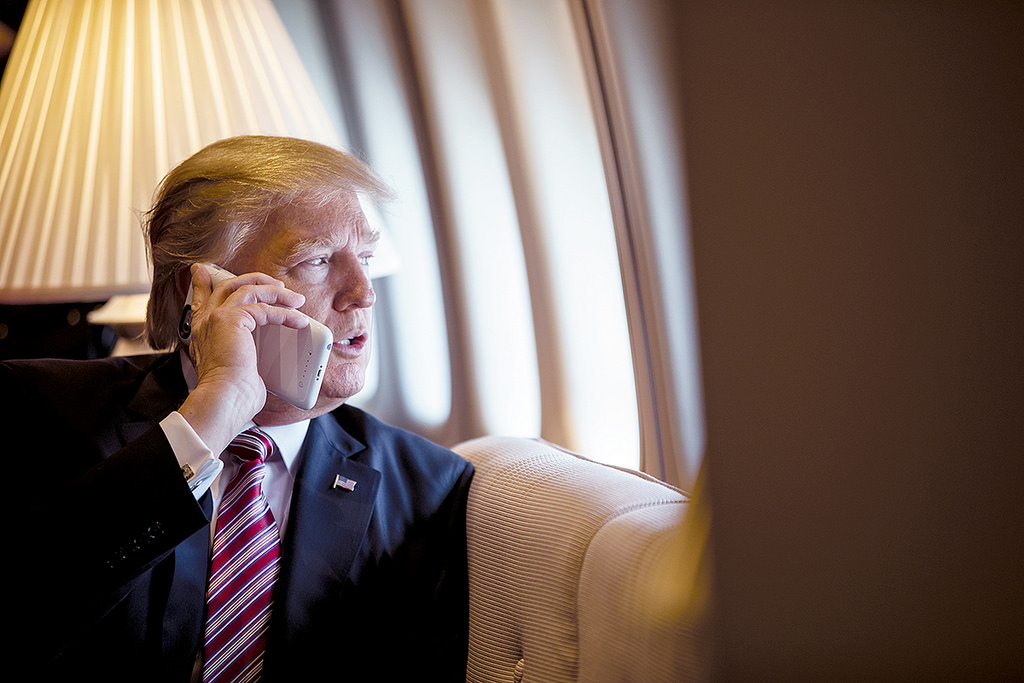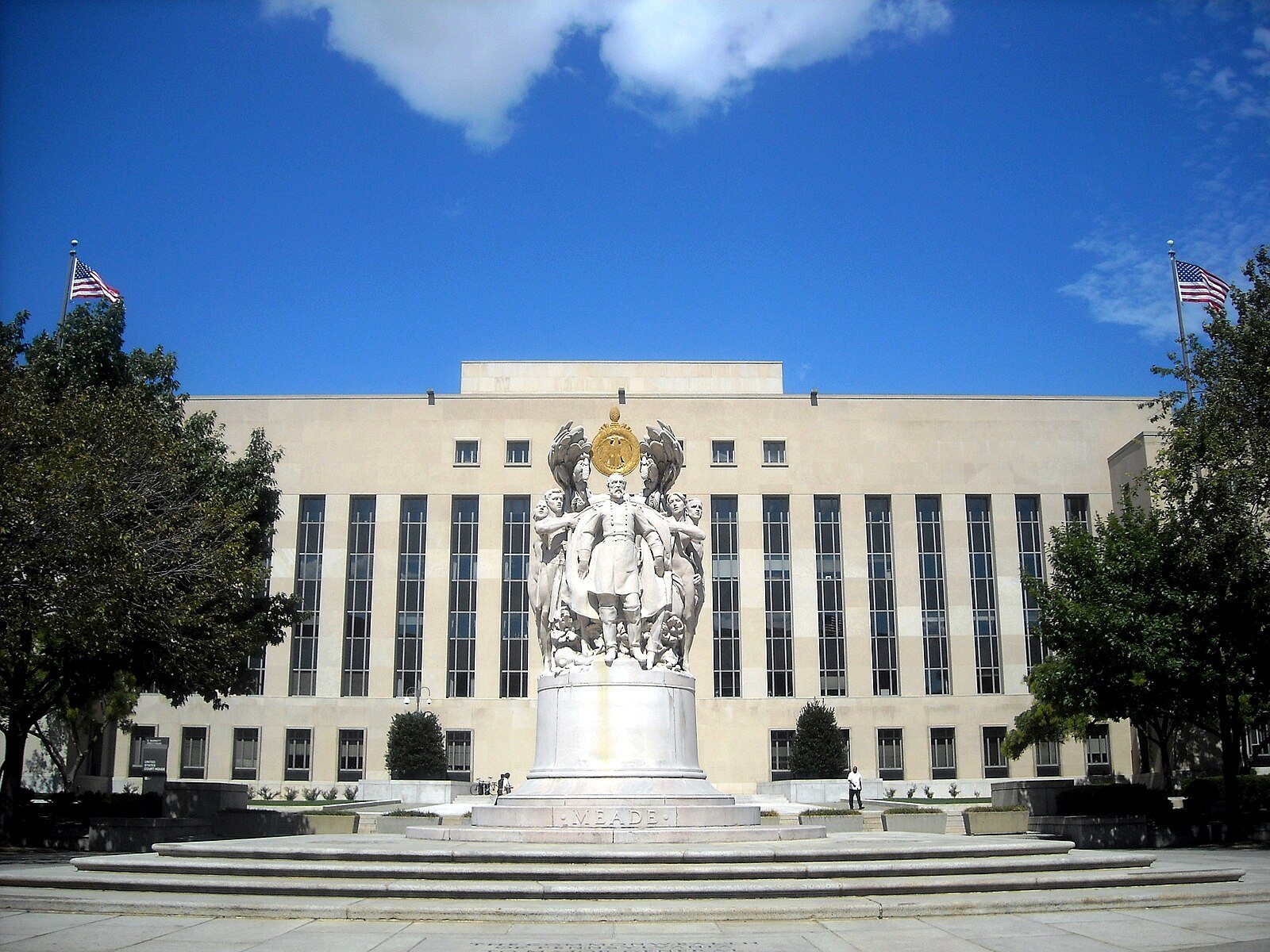On Donald Trump’s ‘Playbook’ and His Refusal to Commit to an Interview with the Special Counsel
So what to make of President Donald Trump’s suggestion that he may not submit to an interview with the special counsel? He has said that he will wait and see, and that he plans to consult with “the attorneys.”

Published by The Lawfare Institute
in Cooperation With

So what to make of President Donald Trump’s suggestion that he may not submit to an interview with the special counsel? He has said that he will wait and see, and that he plans to consult with “the attorneys.”
One interpretation, a clean fit with other pronouncements around the same time, is that he is in another major huff over the Russia “hoax,” and that he is particularly put out by the treatment of it in Fire and Fury. Wolfe reports Steve Bannon’s view that the June 2016 Trump campaign meeting with Russians offering their help was ”treasonous” and “unpatriotic.” And Bannon made specific mention of Donald, Jr.’s role and vulnerability, predicting that the special counsel would crack him “like an egg.” Perhaps when asked, the president was in no mood to hear about interviews with Mueller or to imagine what kind of omelet the special counsel might wish to make with Trump family testimony.
Then there is the possibility that he is not willing to say anything at odds with the intensified argument in some Republican circles that the Mueller investigation has been politicized to the point of illegitimacy. For Trump to say without qualification that he is ready to sit for an interview with the special counsel bolsters the appearance of regular order when Trump allies are loudly alleging irregularity. While his lawyers continue to say off and on that the president will cooperate, this position conveys a judgment that the president has publicly refused to accept—that the Mueller investigation is credible and professional, and that regular order prevails.
Trump’s resistance to any hint of this regular order may be stiffened by the calls among Republican critics of Mueller for a special counsel to investigate the investigators. It is not clear at this time where this proposal will go. Trump’s lawyers have lent their support to this second, parallel inquiry into alleged Justice Department misconduct. Trump may be determined to avoid weakening the case for this appointment by suggesting that, because he is open to a Mueller interview, all must be well at DOJ—or, at least, well enough.
These conceivable reasons for his comments are consistent with the president’s intention, and perhaps that of his lawyers, to refuse to give Mueller an interview. No one can seriously believe that an interview would be in Trump’s personal interest. His lawyers would have to prepare him, at length, to be a disciplined and careful witness. He would have to stick to a specific, credible version of the facts, avoid speculation and free-ranging comment, and present himself appropriately and with suitable control. Trump also knows in advance the challenges he faces on specific issues certain to be covered in the interview, some (but no doubt not all) on the public record. These include his role in dictating a false statement about the Trump Tower meeting in June 2016 between the Trump campaign and Moscow emissaries, and what specifically he knew, and when, about the Flynn lies to their FBI. Even his stoutest supporters would appreciate the risks, and press reports now depict his allies as urging Trump not to run them.
If that is the course that Trump chooses, he may claim that his lawyers have fully cooperated and transmitted any information of value that he has to offer. He may say that any demand for more from him is unreasonable, more proof that the special counsel is acting in bad faith. He may flavor this position with a constitutional argument of sorts. Mueller works for him, and while president may choose not to fire him, he does not have to do whatever the special counsel asks. Should the administration appoint a “second special counsel” to look into alleged DOJ misconduct, the president could say that he will reserve judgment on cooperation until he sees the conclusion of that inquiry.
This last maneuver would be familiar to any who have been hoping to see his tax returns. He held out the possibility of release, subject to the completion of the audit, at one point suggesting to Chuck Todd on Meet the Press that the release was being prepared for and more or less imminent:
Well, we're working on that now. I have very big returns, as you know, and I have everything all approved and very beautiful and we'll be working that over in the next period of time, Chuck. Absolutely.
But it has not happened, and the best guess is that Trump’s plan all along was to hold out against the demand for the returns until those pressing for them gave up the chase. It appears as of now that he will be successful.
Trump turned to this same tactic, drawn from his standard playbook, to fend off complaints about the organization of his private business practices. By the time it became clear that he would continue to freely draw income from properties “in trust” that he was also promoting with regular visits, the topic slipped from regular coverage and active contention.
The decision to refuse an interview with the special counsel would be his most radical step yet in his mismanagement of conflicts between personal interest and public responsibility. Why, observing this president, would anyone doubt that he would give this move a try, subordinating the public to his private interest? The case that he and his allies are building for the illegitimacy of the investigation offers him the way out—or if a “second” special counsel is appointed, the opportunity to say he will “see” what will do, depending on events. As with his business and with his taxes, he may act in the belief that time is on his side.
If this all comes to pass, a president will have declined to give evidence in a federal criminal investigation. And it bears stressing that the president will not do so on the invocation of his Fifth Amendment right against self-incrimination. He will argue that he is not required to “cooperate with himself”: the government seeking his testimony is his government, and that same government can decide by Trump’s choice and his alone to do without the interview.
So Mueller proposes but Trump disposes. The president declared this week that the Russia investigation is so without merit that an interview should be “unlikely.” He may have meant that as a prediction, but it could come to be his decision: A call he believes he is entitled to make about the merits and requirements of the case because he has an “absolute right” to do what he wishes with the Department of Justice. His move would be to convert his individual Fifth Amendment right into an exercise of Article II authority.
In doing so, Trump will flout an expectation ostensibly settled by Watergate, in the course of which the Supreme Court in United States v. Nixon unanimously affirmed that, even in cases involving sitting presidents, “the public ... has a right to every man’s evidence,” subject to the application of a bona fide constitutional, common law, or statutory privilege. The court elaborated on the reason, self-evident as it may be, as follows:
The need to develop all relevant facts in the adversary system is both fundamental and comprehensive. The ends of criminal justice would be defeated if judgments were to be founded on a partial or speculative presentation of the facts. The very integrity of the judicial system and public confidence in the system depend on full disclosure of all the facts, within the framework of the rules of evidence.
Republican leaders in Congress will be asked to respond in the event that it becomes clear that the president is refusing his cooperation with the special counsel. The question will be whether they will, actively or passively, support president in this move, or decide that something fundamental is at stake: “the public…right to every man’s evidence.” Other civil society institutions and sources of community leadership will also be put to the test.


.jpg?sfvrsn=407c2736_6)


